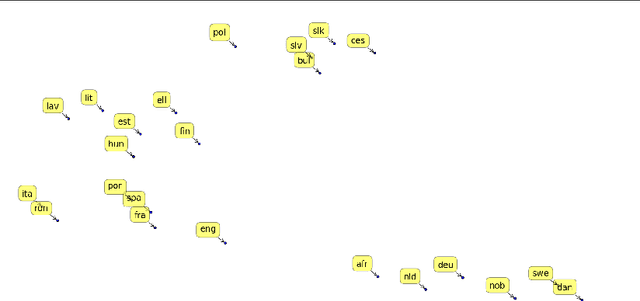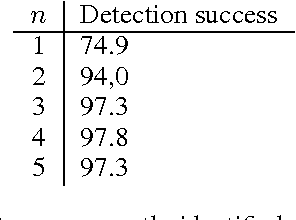Language Recognition using Random Indexing
Paper and Code
Feb 27, 2015


Random Indexing is a simple implementation of Random Projections with a wide range of applications. It can solve a variety of problems with good accuracy without introducing much complexity. Here we use it for identifying the language of text samples. We present a novel method of generating language representation vectors using letter blocks. Further, we show that the method is easily implemented and requires little computational power and space. Experiments on a number of model parameters illustrate certain properties about high dimensional sparse vector representations of data. Proof of statistically relevant language vectors are shown through the extremely high success of various language recognition tasks. On a difficult data set of 21,000 short sentences from 21 different languages, our model performs a language recognition task and achieves 97.8% accuracy, comparable to state-of-the-art methods.
 Add to Chrome
Add to Chrome Add to Firefox
Add to Firefox Add to Edge
Add to Edge